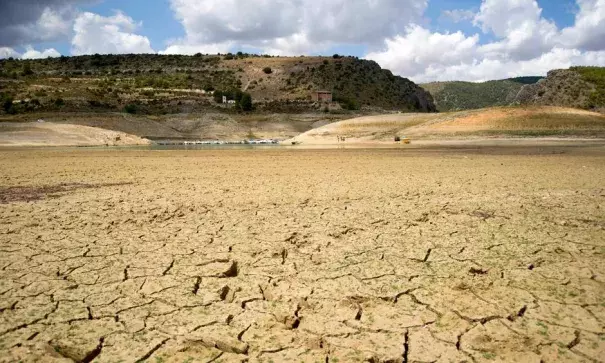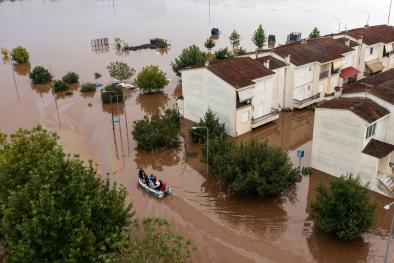Tagus river at risk of drying up completely

The Tagus river, the longest in the Iberian peninsula, is in danger of drying up completely as Spain once again finds itself in the grip of drought.
Miguel Ángel Sánchez, spokesman of the Platform in Defence of the Tagus, says “the river has collapsed through a combination of climate change, water transfer and the waste Madrid produces.”
The Tagus, known in Spanish as the Tajo and Portuguese as the Tejo, rises in Aragón in northern Spain, passes close to Madrid and forms part of the border with Portugal before flowing into the sea at Lisbon. En route, it is dammed no fewer than 51 times in Spain alone.
But its troubles begin at the headwaters in Aragón. In 1902 a plan was conceived to siphon off water from here and divert it to the Segura river to irrigate farms in the arid southeast in what is known as the Tajo-Segura transfer. Construction began in 1966 and water started flowing out of the dammed Tagus headwaters to the Segura in 1979.
However, the amount of available water was miscalculated and Spain’s cyclical droughts were not factored in. Today only 47% of the predicted water resources exist and levels in the two headwater dams are down to 11% capacity, too low to allow any transfers.
“All of these problems derive from designing a water transfer from the headwaters of a river, overestimating the available resources and joining two areas with similar climate cycles,” says Nuria Hernández-Mora, a founding member of the Foundation for a New Water Culture. “The transfer has served to create social and political conflict and turn the Tagus into one of the rivers in the worst ecological state in the peninsula.”
Siphoning off the headwaters is only permitted when the dams have sufficient water – previously this was just an option, not a guarantee of supply. However, the government recently passed a law that says that as soon as there is a surplus there is an obligation to transfer it, making it impossible to store water to cope with droughts.
Related Content



